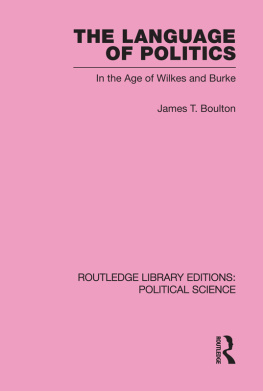EMBODYING INEQUALITIES: PERSPECTIVES FROM MEDICAL
ANTHROPOLOGY
Series Editors
Sahra Gibbon, UCL Anthropology
Jennie Gamlin, UCL Institute for Global Health
This series charts diverse anthropological engagements with the changing dynamics of health and wellbeing in local and global contexts. It includes ethnographic and theoretical works that explore the different ways in which inequalities pervade our bodies. The series offers novel contributions often neglected by classical and contemporary publications that draw on public, applied, activist, cross-disciplinary and engaged anthropological methods, as well as in-depth writings from the field. It specifically seeks to showcase new and emerging health issues that are the products of unequal global development.
First published in 2021 by
UCL Press
University College London
Gower Street
London WC1E 6BT
Available to download free: www.uclpress.co.uk
Collection Editors, 2021
Text Contributors, 2021
Images Contributors and copyright holders named in captions, 2021
The authors have asserted their rights under the Copyright, Designs and Patents Act 1988 to be identified as the authors of this work.
A CIP catalogue record for this book is available from The British Library.
This book is published under a Creative Commons Attribution Non-Commercial 4.0 International licence (CC BY-NC 4.0). This licence allows you to share and adapt the work for non-commercial use providing attribution is made to the author and publisher (but not in any way that suggests that they endorse you or your use of the work) and any changes are indicated. Attribution should include the following information:
Manderson, L., Burke, N.J. and Wahlberg, A. (eds). 2021. Viral Loads: Anthropogies of urgency in the time of COVID-19. London: UCL Press. https://doi.org/10.14324/111.9781800080232
Further details about Creative Commons licences are available at http://creativecommons.org/licenses/
Any third-party material in this book is published under the books Creative Commons licence unless indicated otherwise in the credit line to the material. If you would like to reuse any third-party material not covered by the books Creative Commons licence, you will need to obtain permission directly from the copyright holder.
ISBN: 978-1-80008-025-6 (Hbk.)
ISBN: 978-1-80008-024-9 (Pbk.)
ISBN: 978-1-80008-023-2 (PDF)
ISBN: 978-1-80008-026-3 (epub)
ISBN: 978-1-80008-027-0 (mobi)
DOI: https://doi.org/10.14324/111.9781800080232
Tanja Ahlin is a Lecturer in Anthropology and Science and Technology Studies at the University of Amsterdam. For her doctoral research, she conducted fieldwork in India and Oman on how digital technologies shape care at a distance in Indian transnational families of nurses. She is currently examining how communication technologies influence deaf and hard-of-hearing peoples belonging and socialities. http://tanjaahlin.com/
Bachera Aktar is Assistant Director, Center of Excellence for Gender, Sexual and Reproductive Health and Rights in the James P. Grant School of Public Health, BRAC University, Dhaka, Bangladesh, and has particular interest in food and nutrition, health inequity and the social determinants of health. She has over 11 years of experience of implementing public health programmes and research in rural and urban areas in Bangladesh.
Ouz Alyanak is Volkswagen Foundation Postdoctoral Fellow at the University of Gttingen, Germany, and editorial assistant of social media for Medical Anthropology . His dissertation was on Muslim mens night lives at the Franco-German borderland. He is now exploring occupational injuries and illnesses among Turkish immigrants in Europe.
Linda Rae Bennett is a medical anthropologist and Associate Professor at the Nossal Institute for Global Health, the University of Melbourne, with 25 years of ethnographic experience researching sexual and reproductive health and rights, gender-based violence and health inequities in Indonesia.
Aditya Bharadwaj is Professor of Anthropology and Sociology at the Graduate Institute of International and Development Studies, Geneva. His current research examines infertility, childlessness and healthcare seeking in resource-poor settings in Nepal and India.
Ellen Block is an Associate Professor of Anthropology in the Sociology Department at the College of St Benedict and St Johns University in Minnesota. Her work focuses on the intersections of health, kinship and care in sub-Saharan Africa and the United States. Her current project examines the professional and interpersonal effects of COVID-19 on healthcare providers in the US. She is co-author of Infected Kin: Orphan care and AIDS in Lesotho (2019).
Chiara Bodini is at the Centre for International and Intercultural Health, University of Bologna, and specialises in infectious diseases and in public health. Her work focuses on health inequalities and the social determinants of health, and on the role of social movements and community participation in health promotion and healthcare delivery.
Nancy J. Burke is Professor of Public Health and Anthropology and John D. and Catherine T. MacArthur Foundation Endowed Chair, University of California, Merced. She also serves as Co-Director of the UC-Cuba Academic Initiative. Her current research includes projects focused on ageing in Cuba, syndemic care for high-cost, high-utilising safety-net patients in the United States, and cancer patient navigation programmes in US public hospitals.
Earvin Charles Cabalquinto is a Lecturer in Communication in the School of Communication and Creative Arts at Deakin University, and a member of the Alfred Deakin Institute for Citizenship and Globalisation. He is interested in mobile intimacy and the digitalisation of both domestic and public spaces. He is currently investigating how elderly people from Culturally and Linguistically Diverse (CALD) backgrounds in Melbourne, Australia, forge and sustain relationships among their close and distant support networks. http:// www.ecabalquinto.com .
Melania Calestani is Senior Lecturer at Kingston and St Georges, University of London. She has carried out fieldwork on social/cultural constructions of wellbeing and health in Andean Bolivia with indigenous communities. In the UK, she has conducted ethnographic research on processes of decision-making in the NHS. https://www.kingston.ac.uk/staff/profile/dr-melania-calestani-871/ .
Mahati Chittem is an Associate Professor of Health and Medical Psychology in the Department of Liberal Arts at the Indian Institute of Technology Hyderabad (IITH), Hyderabad, India. Her research interests lie in chronic disease management, including doctorpatientfamily communication, end-of-life decision-making, and adherence to doctors recommendations, and in cultural contexts of health behaviours, primarily diet, exercise and sex.
Setiyani Marta Dewi is a sexual and reproductive health (SRH) practitioner with 12 years of experience in SRH education and service provision for vulnerable populations including female sex workers, street youth, LGBTQI+ individuals and school-based adolescents in Indonesia.














